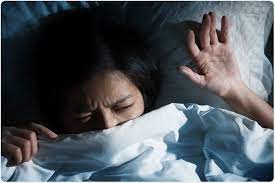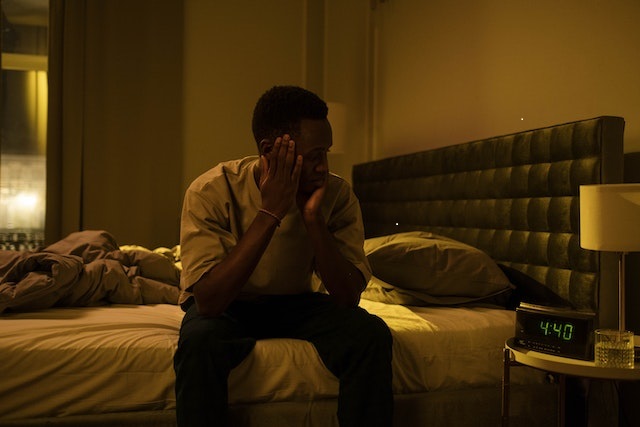
Experiencing a panic attack at night when trying to sleep can happen for several reasons, including anxiety disorder, stress, or other health problems. Anxiety is a common human emotion characterized by nervousness or worry. Sometimes, people may experience anxiety without an obvious cause; however, it often happens when stress lingers for too long.
For instance, individuals may experience anxiety at night if they have to make demanding decisions or face stressful situations like a job interview or a first date. If these feelings persist or keep you up for many nights, you may have developed an anxiety disorder.
You should get a proper diagnosis and ask your doctor for anxiety medication if you are affected by nighttime anxiety. Keep reading to learn more about nighttime anxiety attacks and how to manage this condition.
Causes of Night Anxiety
The primary cause of anxiety attacks at night is the body’s natural response to potential threats. These include:
- Lack of sleep. Individuals who don’t get enough sleep are more likely to experience mental distress, including anxiety and stress. Going for extended periods without getting proper amounts of sleep may disrupt the individuals’ sleep patterns leading to nighttime attacks.
- Life stressors. Stressful and traumatic events like illness, work troubles, natural disasters, childhood trauma, acts of violence, or losing a family member or close friend can also lead to nighttime anxiety. Often, individuals surrounded by such circumstances have difficulty sleeping because of excessive worry and overthinking.
- Genetics. Researchers have discovered that various genes can lead to anxiety. Individuals genetically predisposed to anxiety may develop the condition after experiencing significant life stressors or trauma.
- Side effects of some medications. Medications have varying side effects, and anxiety could be one of them. For instance, starting or increasing steroids, antihistamines, or amphetamine doses has been associated with panic attacks or anxiety symptoms, especially at night. Other substances like nicotine and caffeine can also trigger anxiety.
Symptoms of an Anxiety Attack
Anxiety attack symptoms vary widely for each person. Individuals experiencing anxiety may notice various symptoms, including:
- Restlessness.
- Tense muscles, stomachache, and other types of aches and pains.
- Fear or worry about the future.
- Dizziness.
- Increased heart rate, sweating, and tense muscles.
- Chest discomfort or shortness of breath.
- Tingling sensations, chills, or trembling.
- Nightmares or flashbacks of traumatic events.
Tips to Calm an Anxiety Attack at Night
The best way to calm anxiety attacks at night is by rationally identifying the experience, accepting it, and managing it by allowing the fear to pass. Here is how to calm an anxiety attack at night and diminish the condition’s frequency and severity.
Focus on Breathing
Fighting nighttime anxiety worsens it, and the best way to calm down is to slow down, breathe deeply, and relax the muscles. Focusing on breathing helps to calm down and minimize the stress response allowing one to gain more control over the situation. An effective way to do this is to breathe deeply through your nose or mouth, allowing your chest and abdomen to rise when you breathe in and fall when you breathe out.
Practice a Calming Activity
There’s so much adrenaline coursing through your body during and after a panic attack. It helps if you know what calming activity you could use to burn off the excess adrenaline. It can be a light workout, i.e., swimming or yoga. You can also read a book, make a cup of tea, or do some gentle activity to gain more control of the situation.
Turn Your Attention Outwards
Most people who experience anxiety do a lot of unhealthy introspection, which leads to increased anxiety. It would help if they turned their attention outward by exploring their surroundings. For instance, you could investigate a fluffy carpet or soft cushion or talk to friends and family. Your friends and family will provide a positive, reassuring presence and help you overcome your anxiety attack.
How to Prevent Nighttime Anxiety
Practice Good Sleep Hygiene
Proper sleep hygiene helps individuals sleep better and decreases anxious thoughts at night. Habits necessary for proper sleep hygiene include:
- Limiting screen time (especially before bedtime).
- Minimizing heavy meals and physical activity before bedtime.
- Minimizing alcohol and caffeine consumption.
Practice Meditation
Meditation before bedtime is a helpful activity to calm down and slow your thought process. A person can practice deep breathing and spend a few minutes meditating. It can help to deconstruct the day’s experiences and manage stress.
Exercise
Another activity that can decrease nighttime anxiety is exercise before bedtime. This reduces the production of stress hormones helping individuals fall asleep faster. It is recommended to exercise at least one hour before bedtime and avoid overexerting.
Wind Down
You can also set a time to wind down and create a good mood for sleep. This includes listening to calming music, dimming the lights, and taking a warm bath. They should also avoid stressful activities before bed and write down any worries they may be thinking about. They should set the right environment for sleep and try to fall asleep as soon as they get in bed.
Conclusion: How to Calm Anxiety at Night
Anyone can experience an anxiety attack anytime, even at night. However, the condition is manageable and preventable if you notice the symptoms early and find proper ways to manage them. The best solutions are making lifestyle changes, reducing stress, and seeking help from a medical professional for proper treatment.











